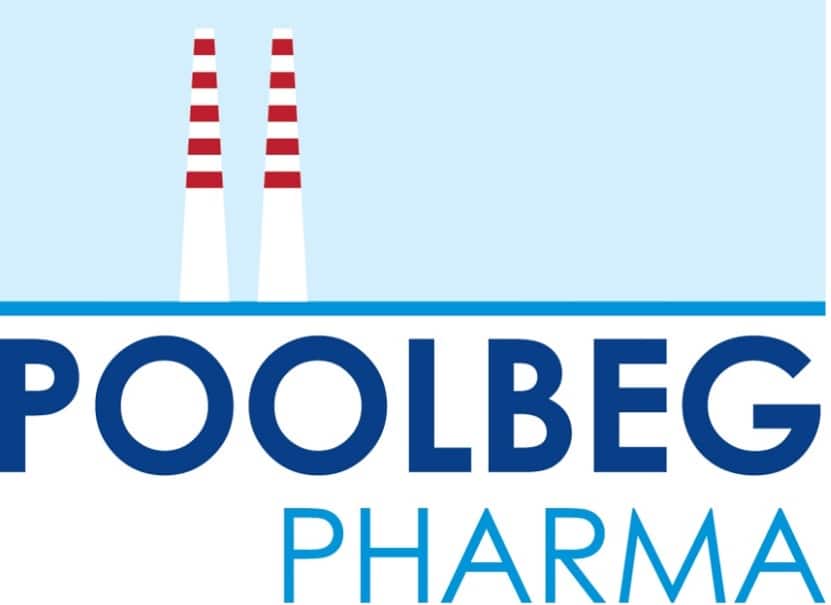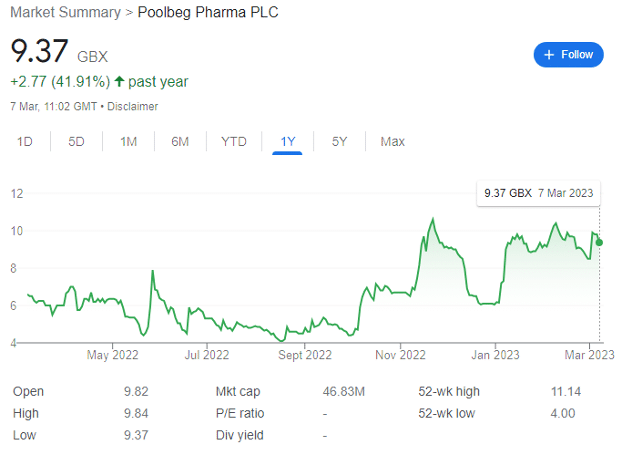POLB 001 is in the early days, but initial data suggests it could become a key treatment for influenza alongside promising oncological applications.

Poolbeg Pharma (LON: POLB) shares are not for the faint-hearted. Despite rising by 42% over the past year, the FTSE AIM biotech has seen serious share price spikes and crashes. As a long-term investor, these don’t particularly worry me, but for those with itchy fingers or those for whom short-term trading is their bread and butter, POLB is unlikely to be a match made in heaven.
But there have been serious recent developments at the biotech that means it could be an excellent portfolio inclusion over the longer term.

Poolbeg Pharma: investment case in brief
Poolbeg was spun out of hVIVO in 2021, and therefore has access to over 20 years of expertise from human challenge studies derived from its parent. It’s worth noting that hVIVO (another of my long-term biotech portfolio stocks) is now up 65% year-to-date.
POLB has several clinical trial candidates, including its POLB 001 viral strain agnostic for influenza treatment and CAR-T cell companion therapy, POLB 002 for respiratory viral infections, and POLB 003, a Melioidosis vaccine candidate.
It’s also partnered with various outfits to develop several product platforms — OneThree Biotech for RSV Therapeutics, CytoReason for Influenza drug targets, and AnaBio Technologies to develop an oral delivery platform of immune stimulating antigens to the gut.
I could dedicate several pages to explaining the science of all of these treatments, but POLB 001 is the key flagship which could deliver serious upside potential — and is primarily responsible for the current share price elevation.
POLB 001 is a small molecule immunomodulator used for the treatment of cytokine release syndrome-related conditions, such as severe influenza and other acute inflammatory conditions. The treatment selectively inhibits overwhelming inflammation in viral infections, such as influenza, while leaving the necessary immune functions intact to fight the infection.
There are several advantages to this approach:
First, it’s an improvement to alternative methods such as steroids as these affect both beneficial and damaging immune responses.
Second, its mode of action is strain-agnostic, and therefore is effective on all seasonal variants of flu.
Third, the treatment is delivered as a shelf-stable oral drug meaning it can be stockpiled — a key factor for governments preparing for winter diseases.
POLB 001 updates
On 2 March, Poolbeg announced that there is now ‘strong potential for POLB 001 to be a blockbuster treatment for severe influenza’ after positive results from its bacterial lipopolysaccharide Human Challenge Trial. The candidate resulted in a ‘highly significant reduction in p38 MAP kinase driven cytokines’ across the 36-volunteer group and exhibited ‘a marked reduction in multiple markers of systemic and local inflammation compared with placebo.’
For context, blood cytokines are synonymous with cytokine release syndrome (‘CRS’) common in severe influenza, patients receiving CAR T cell treatment, and other acute inflammatory conditions.
The treatment is therefore judged as demonstrating the previously expected utility in severe influenza and other acute inflammatory conditions. POLB 001 was shown to be ‘safe and well tolerated’ and had a ‘potent effect in systemic and localised inflammatory response in a dose dependent manner.’
Specifically, the ‘typical LPS-induced rise in plasma cytokine levels (TNF-α, IL-6, and IL-8) decreased between 57-81% across all cytokines in subjects treated with 70 mg or 150 mg POLB 001 (all highly significant P values).’

CEO Jeremy Skillington enthuses that ‘these data indicate POLB 001 reaches all cells and tissues where p38 MAPK is expressed, shutting down inflammation and silencing multiple aspects of overactivated inflammation unlike many anti-inflammatory drugs that target a single immune pathway.’
Further the CEO exhorts that ‘POLB 001 has the potential to be an effective treatment in a wide range of inflammatory syndromes that present serious and life-threatening complications for patients.’
Oncology development
The company has also launched a strategic expansion of POLB 001 into oncology, with a recently filed patent, noting that Human Challenge trial finds indicate that ‘POLB 001 has the potential to dampen the pro-inflammatory cytokine release syndrome affecting patients receiving CAR T cell therapies.
The FTSE AIM company expects to progress towards initial trials in CAR-T patients at some point next year.
Scientific Advisory Board Member Professor Brendan Buckley argues that ‘POLB 001 has the potential to significantly reduce the serious adverse effects that many CAR T cell patients suffer. With 18-19 million cases of cancer diagnosed globally each year, the use of cell therapies is predicted to expand significantly over the coming years with the CAR T cell market expected to grow to an estimated $6 billion by 2031.’
However, it’s worth noting that there are still Phase II and Phase III trials to overcome for POLB 001 to be used to treat influenza, and this oncology study is at the very beginning of development.
At the current price point, Poolbeg represents a fair risk to return, especially as part of wider biotech portfolio where some failures are to be expected.
But there will likely be serious further volatility on the way up the mountain.
This article has been prepared for information purposes only by Charles Archer. It does not constitute advice, and no party accepts any liability for either accuracy or for investing decisions made using the information provided.
Further, it is not intended for distribution to, or use by, any person in any country or jurisdiction where such distribution or use would be contrary to local law or regulation.
